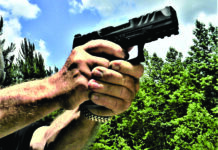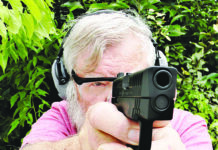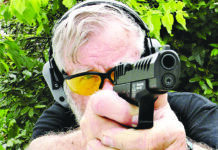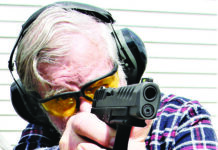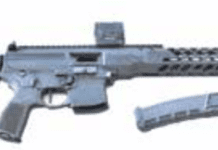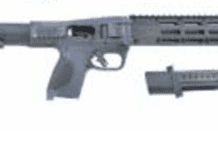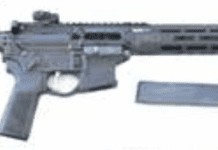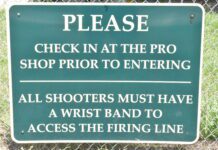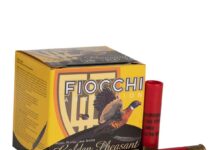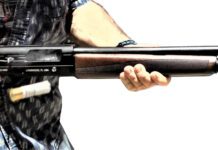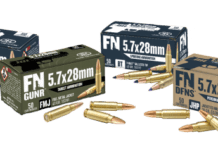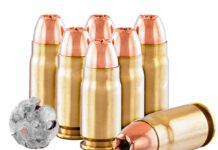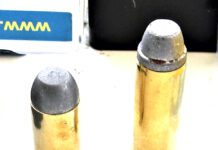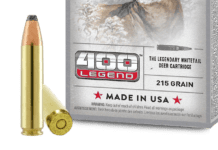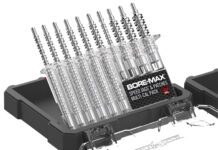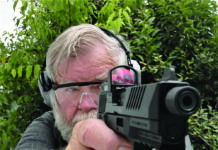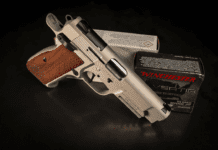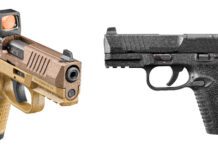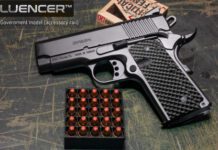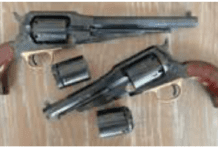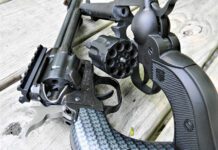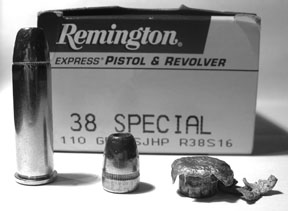
The .38 Special continues to be one of the most popular revolver cartridges in production, in part because the load can be made hotter with higher-pressure +P loads, but also because it can still do a viable job of self-defense, even when loaded for standard pressures.
But one additional area of .38 Special performance is our focus here: lower-pressure, lower-recoil ammunition. Because the .38 has been popular for decades, there are many older revolvers which can’t shoot higher-pressure +P loads (consult your gunsmith) safely. Also, there are many Gun Tests readers with new .38 Special or .357 Magnum revolvers who are very recoil conscious, and who might prefer a .38 round with softer recoil.
We decided to see if the lightest commercially loaded .38 Special rounds met our self-defense standards, and we added in a couple of handloads to take it down another notch or two.
We took a stock Smith & Wesson Model 686-2 with a 4-inch barrel that, at the time of testing, had already fired approximately 1500 rounds. Into the gun we fed one round at a time, always into the same chamber of the cylinder, defense-appropriate .38 Special hollowpoint loads: Winchester’s 110-grain Silvertip hollowpoints (Load No. X38S9HP); Federal’s Premium Personal Defense 110-grain Hydra-Shoks (Load No. PD38HS3 H), and Remington’s 110-grain Semi-JHP (Load No. R38S16 ). We also built a low-pressure handload using Sierra 110-grain Sports Master JHC Blitz bullets No. 401550) and Hodgdon HP-38 powder.
Midway USA (www.midwayusa.com/, [800] 243-3220) sells the Federal Hydra-Shoks (product 211732) for $12.79/20, or 64 cents each. The Winchester 110-grain Silvertip HP (Product #722761) run $28.49/50, or 57 cents each. The Remington Express 110-grain SJHPs (Product # 349556) are $26.49/50, or 53 cents each.
To build our own low-velocity handload, we used Sierra 110-grain JHC bullets (No. 401550), which were $11.99/100, or 12 cents each, and Hodgdon HP-38 powder (No. 971488), which was $15.59 for a 1-pound container, or about 1 cent per 5 grains. Winchester Small Pistol Primers (Product # 166619) were $18.99 per thousand, or about 2 cents each. Winchester unprimed brass (No. 399879) was $9.99 for 100 pieces or 10 cents each, for a grand total of 25 cents a round. To test the handload, we put the 110-grain bullets atop a charge suggested by Hodgdon Powder staffers. They suggested 4.6 to 5.2 grains of HP-38 powder, so we tried both loadings.
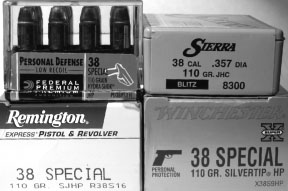
During [PDFCAP(1)] we used a new Lee Precision Four Hole Turret Press Deluxe Reloading Kit with Auto Index (Lee No. 90928), which Midway USA (No. 622290) sells for $95. We were very impressed with quality, function, and speed of this new press. It took less than 15 minutes to have the press out of the box and into operation, and we had no problems of any kind.
We also employed a new Lyman1200DPS II Digital Powder System (Lyman No. 7752400) which Midway USA (No. 235817) sells for $290, to measure out exact powder charges. The powder system was accurate and easy to use. It took about 20 seconds to dispense and weigh 5.2 grains of powder, but most of the time is spent in the trickle mode to get the weight exactly correct. It took about 45 seconds to dispense 40 grains of powder. For shooters who weigh every charge, this system makes it easy.
Our testing procedure had several stages in it. If a round was found wanting at any stage, it was removed from the rest of the test, and the survivors continued. The stages are described briefly below; a more detailed testing procedure can be viewed and downloaded free of charge at qa.gun-tests.com/performance/ammunition.html.
Reliability.Every round fired passed the reliability portion of the test. The gun worked perfectly. Our test gun has never malfunctioned.
Velocity. Velocities were recorded by firing 20-shot strings over a Oehler Model 35P with Proof Channel chronograph. Every load met our standard for consistency, except the Federal Premium with a Standard Deviation of 21 (our standard is 20). The results appear in the accompanying table. The commercially loaded ammos fell in the mid-900 fps range. Our handloads went down to the mid- to upper-700-fps range.
Accuracy. The Remington SJHP was the most accurate in the test with an average 1.0-inch group. The other rounds tested met the accuracy standard, with Federal taking second place. The detailed results appear in the nearby table.
Recoil Level.Information for all four loads is provided in the accompanying table. The felt recoil for all of the commercial loads was nearly identical, and the handload was slightly less than the others. All of the loads were very controllable. In a standard-weight gun like the model 686 we used, these loads exhibit a good combination of muzzle energy and very low recoil.
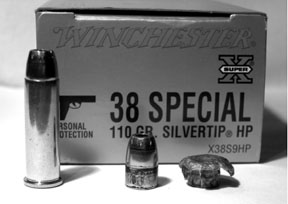
Penetration, Expansion, and Weight Retention.All five loads were fired into water. The handloads totally penetrated all four to five jugs and were thus eliminated from consideration as a carry load, at the final test, for dangerous over-penetration, especially on a frontal shot given the human body’s narrow chest-to-back diameter. The recovered bullets measured .357 and .383 inches. The bullet weights were 110.0 grains, the same as the unfired bullet. The bullets showed little to no expansion, allowing them to over-penetrate, which brings out an important point. The design of a hollowpoint bullet determines its depth of penetration more than it velocity does.
(Likewise, the Federal round penetrated too deeply, and was eliminated from consideration. It also showed too wide a standard deviation reading, but we shot it into water anyway.)
The Remington 110-grain jacketed hollowpoint penetrated 15 inches of water; it came to rest in jug #3. Thus its penetration is a little deeper than we prefer, but within our standards. The recovered bullet had expanded to 0.617 inch, the most in the test, and weighed 109.3 grains. The unfired bullet weighed 110.0 grains.
We fired the Winchester 110-grain Silvertip HP into water. The Silvertip penetrated 12 inches of water, which is close to ideal. The recovered bullet measured 0.581 inch, second largest in the test, but it weighed 99.1 grains having lost nearly 10 percent of its weight.
Gun Tests Recommends
Remington Express 110-grain SJHP No. 349556, $26.49/50. Our Pick. This was the most accurate ammunition (1.0 in. at 25 yards average) with good penetration (15 inches), although a little more than ideal. It worked with perfect reliability in our test gun. Its standard deviation of 10 fps was the second best in the test. Its expansion and weight retention were excellent, and recoil was very manageable.
Winchester 110-grain Silvertip HP No. 722761, $28.49/50. Buy It. This ammo just met our accuracy standard (2.0 in. at 25 yards) and had near ideal penetration of 12 inches, with expansion not as good as the Remington, but better than the other loads. Its SD of 13 fps was within our test range.
Federal 110-grain Hydra-Shok Hollowpoints No. P38HS1, $12.79/20. Don’t Buy. This round overpenetrated (18+ inches), and did not meet our standard deviation standard of 20 fps. It also had the highest cost per round, using Midway’s prices.
Handload with Sierra 110-grain Sports Master JHC Blitz bullets. Don’t Buy. This round penetrated a lot more than we like (24 to 30 inches) and had the worst bullet expansion. This bullet may expand very well at higher velocities, but it doesn’t work well around 800 fps.
-Written and photographed by Kevin Winkle, using research from Gun Tests team testers.


